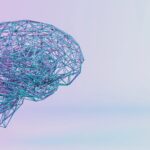
- October 23, 2024
- 1. Introduction
- 2. What is the Scope for Data Analytics in Healthcare?
- 3. Is There Any Solid Evidence for Implementing Data Analytics in Healthcare?
- 4. What Are the Benefits of Data Analytics in Healthcare?
- 5. What Are the Top Use Cases of Data Analytics for Healthcare?
- 6. Fraud Detection
- 7. Healthcare Predictions
- 8. Resource Allocation
- 9. Patient Engagement
- 10. What Are the Challenges for Data Analytics in Healthcare?
1. Introduction
The healthcare sector is one of the most prominent data analytics users right now. This article will learn more about data analytics use cases in healthcare and their future.
Data analytics is the most promising instrument for any enterprise seeking the best ways to derive value from the data. How have healthcare companies used data to their advantage? The applications of data analytics in healthcare industry have successfully delivered value in different healthcare settings such as healthcare insurance companies, large medical institutions and small private clinics. Data analytics has recently emerged as a vital factor for optimizing the quality of clinical care, operational management and administrative tasks. On top of it, experts have estimated that predictive analytics and big data would become prominent highlights for the healthcare industry. What is the value of data analytics for the healthcare sector? Is it necessary in a field where care and compassion take precedence over numbers and facts? How will data help in improving healthcare?
You can come across many other critical questions when figuring out the possible ways to use data analytics for healthcare. The following post helps you uncover the potential of big data for the healthcare sector with an outline of prominent use cases. You can also identify the potential challenges for implementing data analytics in healthcare use cases.
2. What is the Scope for Data Analytics in Healthcare?
Innovation is the core element responsible for driving many improvements in the domain of healthcare. New technological advancements such as machine learning, 5G, Internet of Things and artificial intelligence have augmented many healthcare applications. At the same time, data and analytics have emerged as central currencies of the global healthcare landscape. How? Data is capable of ensuring financial and clinical excellence through precision medicine, real-time decision making and use cases for population health management.
Global healthcare systems are successfully using real-world insights based on analytics for transforming the delivery and quality of care. Healthcare leaders can leverage predictive analytics for implementing data-driven decisions with accuracy to improve value. As of now, the healthcare sector is responsible for almost 30% of the total volume of data generated in the world. The volume of healthcare data would most likely reach a margin of 36% by 2025. Therefore, big data and analytics support enterprises in data management and in optimizing healthcare operations throughout the industry. Most importantly, analytics help in processing the continuously growing repositories of healthcare data. Understand the true potential of data analytics now with Visvero.
3. Is There Any Solid Evidence for Implementing Data Analytics in Healthcare?
The growing volumes of healthcare and medical data present a strong case for embracing data analytics in healthcare. Here are some notable pointers which establish the need for big data analytics in healthcare sector today.
- As of 2020, over 95% of health facilities use Electronic Health Records or EHR systems.
- Almost 60% of the hospitals in the US use IoT devices, which account for a massive portion of healthcare data.
- According to a 2019 survey by Gartner, around 48% of healthcare CIOs perceived data and analytics as a top priority.
According to the Society of Actuaries, almost 60% of health executives reported the use of predictive analytics in their organizations. In addition, 42% of these executives reported improvements in patient satisfaction through the use of analytics. On the other hand, 39% of the executives using data analytics reported cost savings as a significant advantage.
In the event of a global pandemic in 2020, the worldwide market for healthcare analytics stood at almost $14.6 billion. Estimates also point out that business data analytics in healthcare would make up a $59.7 billion market by 2026.
Some of the notable markets with better scope for implementation of data analytics in healthcare include the US, China, Japan, Canada and Germany.
You can notice that almost all healthcare institutions generate and rely on data. The use of EHR systems and IoT devices alongside new technological advancements create the foundation for increasing the collections of healthcare data. As a result, you would need healthcare data analytics for making sense of the data available to healthcare enterprises. Will data analytics help in improving healthcare operations?
4. What Are the Benefits of Data Analytics in Healthcare?
The healthcare industry is obviously a treasure trove of data and a fertile ground for data analytics. However, a clear impression of the benefits of big data analytics for the healthcare sector can help you find whether data analytics is suitable for healthcare.
The first benefit of data analytics in healthcare refers to improved quality of healthcare and safety of patients through real-time access to patient information.
Data analytics help collate data from multiple sources, thereby improving procurement transparency, resource utilization, and inventory levels.
Insights from healthcare data analytics can support faster identification and resolution of financial anomalies for achieving desired financial goals.
The different benefits of data analytics for the healthcare sector clearly reflect the necessity of data analytics in healthcare. However, it is also important to know how you can use data analytics in the domain of healthcare in real use cases.
5. What Are the Top Use Cases of Data Analytics for Healthcare?
With a clear impression of the need for data analytics in healthcare alongside the benefits of big data analytics for healthcare, you know the significance of data analytics. So, how can healthcare companies use data analytics to their advantage? Here are some of the practical use cases of data analytics in healthcare industry that encourages broader adoption of healthcare analytics.
6. Fraud Detection
Healthcare fraud is one of the most expensive drawbacks for healthcare spending. As a matter of fact, healthcare fraud is responsible for compromising around $68 billion from annual healthcare spending in the US. Many malicious agents, deceitful practitioners and organized crime are the primary elements responsible for such massive impact of healthcare fraud. On top of it, unintended mistakes by honest providers can also result in many instances of healthcare fraud. However, the evaluation of healthcare claims in data analytics can help in identifying claim patterns throughout different policies. Data analytics can help precisely identify medical services, which are unnecessary for concerning diagnosis. In addition, the use of big data analytics in healthcare also helps in the better discovery of duplicate and phantom billing. You can identify flexible prospects for integrating fraud detection functionalities in analytics solutions for healthcare with Visvero right now.
7. Healthcare Predictions
The foremost work for a data analyst in the healthcare sector focuses on clinical predictions. Healthcare organizations, health insurance companies and clinics leverage predictive analytics for determining the possibilities of patients developing specific medical conditions. The advancements in data science and analytics enable the aggregation of data from different sources such as EHR data, national data, claims data and biometric data. Analysts can get data from all these sources together in models for predictions regarding the possibility of health issues such as cardiac problems, COPD, diabetes or stroke. As simple as it may sound, the benefits of data analytics can help in predicting the likelihood of diseases way before they happen. Subsequently, healthcare providers can use data analytics to identify the necessary interventions required for better health outcomes.
8. Resource Allocation
The benefits of big data analytics for the healthcare sector are not all about improving the quality of care and safety against fraud for patients. Healthcare companies can leverage analytics to achieve considerable improvements in the efficiency of administration. Modern healthcare organizations are experiencing constant growth in the size, complexity and scope of operations. Therefore, administrators have to encounter formidable difficulties ineffective resource allocation. On the other hand, predictive analytics can support the easier identification of patterns in resource allocation. As a result, healthcare administrators could identify future needs effectively alongside ensuring that the right resources are accessible at the right time and right place.
9. Patient Engagement
Another formidable use case of healthcare data analytics focuses on improving patient engagement on an individual level. Predictive analytics offers a proven instrument for developing a clear understanding of patients and their behavior. For example, analytics can help in determining the likelihood of patients attending their medical appointments. As a result, it can support administrators’ inefficient planning of schedules and resource allocation. A comprehensive understanding of patient behavior also helps in determining how likely they are to accept specific healthcare messages or interventions.
10. What Are the Challenges for Data Analytics in Healthcare?
As the discussions around “What is data analytics in healthcare?” gain momentum, experts are wondering about the possible challenges. Some of the notable challenges for the integration of data analytics in healthcare primarily emerge from the concerns of cost. Here are some of the notable challenges for the adoption of data analytics in healthcare.
- Inefficient and slow storage systems
- Lack of standardization in data formats
- Inadequate data technologies and training for healthcare staff
The implications of data and analytics for the healthcare industry go far beyond the basic goal of predicting illnesses. You can learn how to use data analytics solutions for healthcare with a credible data analytics solution provider like Visvero right now.
- 1. Introduction
- 2. What is the Scope for Data Analytics in Healthcare?
- 3. Is There Any Solid Evidence for Implementing Data Analytics in Healthcare?
- 4. What Are the Benefits of Data Analytics in Healthcare?
- 5. What Are the Top Use Cases of Data Analytics for Healthcare?
- 6. Fraud Detection
- 7. Healthcare Predictions
- 8. Resource Allocation
- 9. Patient Engagement
- 10. What Are the Challenges for Data Analytics in Healthcare?



